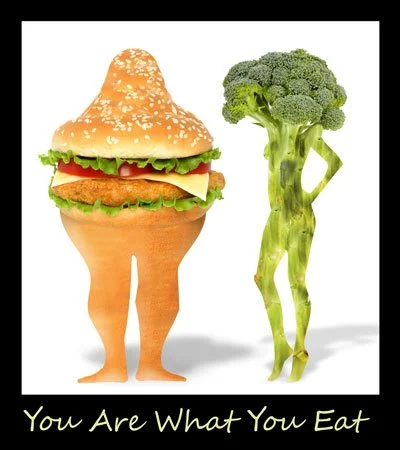THE FAT CONUNDRUM
We live in such a confusing time. The media recently released a headline that said "Omega 3's play no role in the reduction of cardiovascular disease". The Vital study that was quoted, only introduced a small amount (840ml) of DHA/EPA a day with its test subjects. This was not enough to effect change and is a case where “the devil is in the detail”. The Reducit trial, however, introduced 4 grams of fish oil per day to a similar test group and saw a 25% reduction in cardio vascular disease. Unfortunately, that is not the headline that the media picked up. It is difficult to wade through all the information coming at us on a daily basis and my goal is to try and help people decipher some of the constant onslaught of differing opinions.
I think that fat has been one the most misunderstood nutritional conundrums of the last few decades which is the reason that I decided focus on it first. It has been completely demonized. Why do we need fat? Once digested we use the fatty acids to maintain the function of our body’s cells and membranes, in hormones and in neurotransmitters. Fats are used for energy production and provide the most energy per gram of all the macronutrients.
You actually need fat to burn fat. Fat does not create fat in the body, sugar does. There are certain fats that increase thermogenesis (the ability of the body to burn fat). They are Omega 3's and they increase the fat burning genes (or beta oxidation) in your liver. These fats are long chained fatty acids known as DHA and EPA. It is important to understand that 60 to 70% of our brains are fat cells and half of those are made up of DHA. It has been documented that people with the highest DHA index have the largest brains with the largest memory centres and of course the reverse is true; those with the lowest DHA Index have shrunken brains and small memory centres. People have been depriving themselves of fat for decades. The biggest travesty of this is that the low-fat food industry replaced the fat with sugar. Hence the obesity epidemic, because as I said, refined sugar is what contributes to the creation of fat. How does this happen? Well firstly it is important to understand that when the body senses glucose (sugar) it releases insulin to lower blood sugar levels and the insulin tells our cells to hold on to fat.
Omega 3 fats also have high anti-inflammatory properties and are crucial for our overall health. A common belief amongst the science world is that 2000 to 3000 mg's per day helps to reduce cardiovascular disease and support our brain. It is important to note that the things that break down the good fats in our bodies are processed foods, alcohol, pesticides and refined sugars. Over time this destruction builds up and causes heart attacks and Alzheimers, two of the most common health issues of our time.
From a practical standpoint (and to satisfy the nutritionist in me) I need to point out that a 4 oz piece of wild salmon would provide about 3000 mg of EPA/DHA. It is always best to get your nutrients from whole food but if you cannot eat wild seafood every day taking a good quality supplement can have huge benefit. Keep your fish oil in the freezer though so it does not become rancid.
I have listed all the best sources of omega 3’s; ALA (alpha -linolenic acid), DHA (docosahexaenoic acid) and EPA (eicosapentaenoic acid) and their mg per serving;
EPA and DHA
Salmon/Trout 4023 mg/4-6 ounces
Mackerel 4107 mg
Sardines 2205 mg
Herring 3181 mg
Anchovies 951 mg
Cod liver oil 2664 mg/tbsp
Algal Oil (Algae) 400-500 mg/tbsp
Perilla Oil 9000 mg/tbsp
ALA PLANT SOURCES
Hempseeds 6000 mg/ounce
Flaxseeds 2338 mg/tbsp
Walnuts 2542 mg/ounce
Brussels Sprouts 270 mg/cup ALA plant sources
This is just the tip of the iceberg on the discussions that can be had on fats. Look forward to sharing more.





